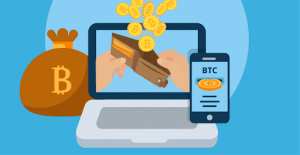How Can Crypto Investors Avoid the Regulatory Risks Associated with Centralized Storage?
Cryptocurrency storage is one of the most important things that investors should consider when joining the burgeoning digital asset market

However, most people in this space have little to no knowledge of the existing options. As it stands, crypto exchanges currently hold the larger share of investors’ capital despite the associated risks, including hacking and regulatory pressures from oversight authorities.
Before diving deeper, it is worth noting that there are currently two types of crypto wallets; custodial and non-custodial. The former is offered by centralized crypto service providers while the latter requires no third party intervention. Simply put, non-custodial wallets give crypto users access to their private keys, meaning that an investor is fully in control of their funds at any point in time.
So, what is the danger of storing crypto funds in a custodial wallet? For starters, this type of crypto storage retains a user’s private keys hence limiting them from accessing their funds without the blessings of the service provider. In the past, there have been several cases where crypto investors lost a ton of money as a result of crypto exchanges being hacked or directives from authorities to freeze funds.
Some of the notable incidents include the Mt.Gox hack back in 2014 where 850,000 Bitcoins were siphoned from the exchange (roughly worth $460 million back then). On the regulation front, authorities have in the past seized crypto assets through the help of centralized exchanges. Additionally, it has become quite easy for regulators to direct the freezing of crypto funds in the wake of new compliance laws such as the 5AMLD and MiCA.
Non-Custodial Wallets
Like most tech innovations, the crypto ecosystem has evolved to feature a wide range of products; users now have the option of storing their assets with exchanges or non-custodial wallets. While centralized crypto custody still enjoys a comfortable lead, non-custodial wallets have begun going mainstream given their value proposition when it comes to the principle of decentralization.
To this end, we have several options that crypto users can leverage, the most notable ones include hardware wallets such as trezor and ledger. These off-chain crypto storage solutions are designed as a hard disk (cold storage) that can only be accessed through a private key held by the owner. This means that no government institution can gain access to one’s crypto funds; however, they can be hacked should a malicious player obtain the login credentials.
The other alternative is a software wallet like Metamask; according to the latest update by Consenysys, this wallet hosts over 10 million monthly active users (MAUs). Quite a big share of the crypto market, given that Decentralized Finance (DeFi) innovations on Ethereum picked up just the other day. That said, Metamask’s current infrastructure is somewhat sophisticated for the new entrants in the crypto market.
So, where can a newbie store their newly found DeFi wealth? There are some Metamask alternatives such as the Ambire wallet which offers a simpler user interface. Most notably, this non-custodial wallet features an email registration option, eliminating the need for crypto investors to manage complex seed phrases. In addition, Ambire has launched a web application that newbies can easily navigate compared to the browser extension offered by Metamask.
As we can see from these few examples, crypto investors are not limited to the services offered by centralized exchanges. In fact, it is much easier to navigate the DeFi ecosystem through non-custodial wallets like Metamask and Ambire. After all, it is much better to have control over your private keys; not your keys, not your crypto!
Final Thoughts
The value of any asset is largely dependent on the ability to liquidate without much hussles; that being the case, crypto investors ought to be very careful about where they store their assets. As much as crypto exchanges are easily accessible, the underlying risks cannot be ignored. It is much better to store one’s funds in a decentralized platform where they have full control instead of relying on centralized intermediaries that have proven to be easily compromised by hackers and regulatory measures.









